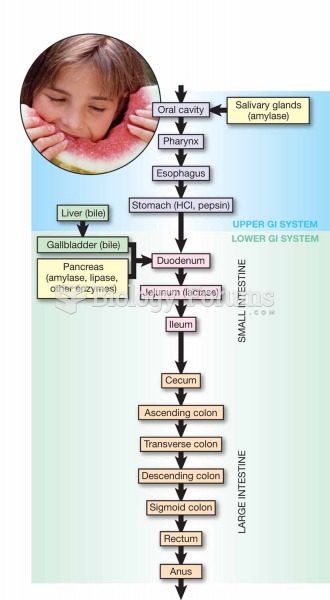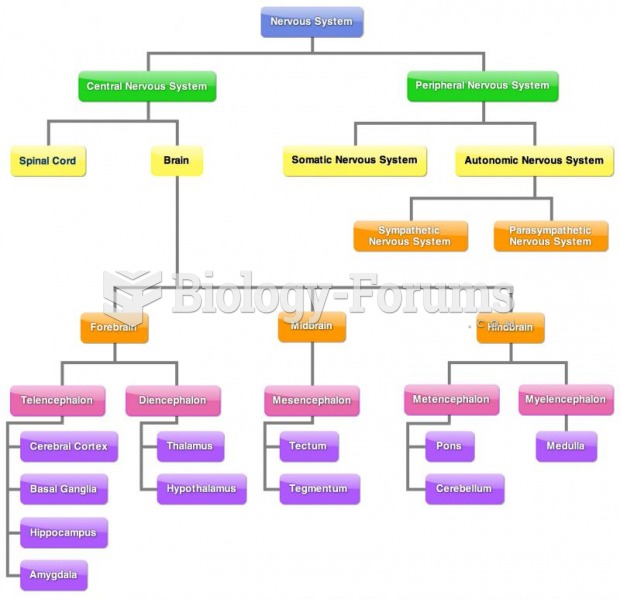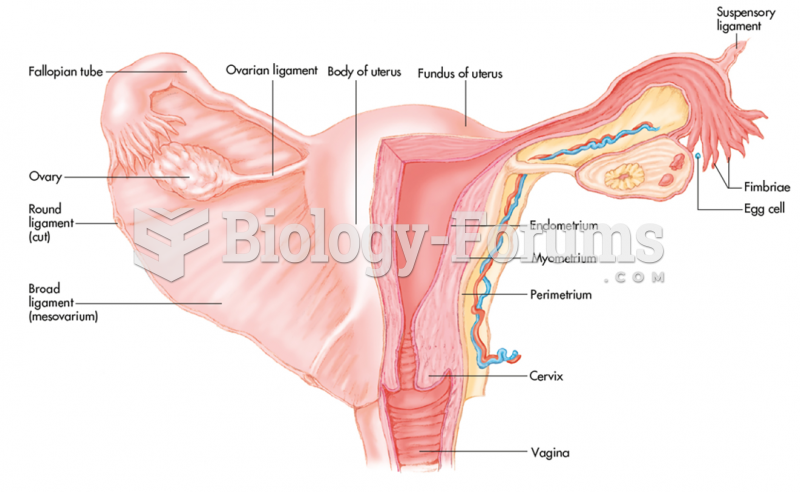|
|
|
About one in five American adults and teenagers have had a genital herpes infection—and most of them don't know it. People with genital herpes have at least twice the risk of becoming infected with HIV if exposed to it than those people who do not have genital herpes.
Many people have small pouches in their colons that bulge outward through weak spots. Each pouch is called a diverticulum. About 10% of Americans older than age 40 years have diverticulosis, which, when the pouches become infected or inflamed, is called diverticulitis. The main cause of diverticular disease is a low-fiber diet.
When blood is exposed to air, it clots. Heparin allows the blood to come in direct contact with air without clotting.
It is difficult to obtain enough calcium without consuming milk or other dairy foods.
People about to have surgery must tell their health care providers about all supplements they take.







